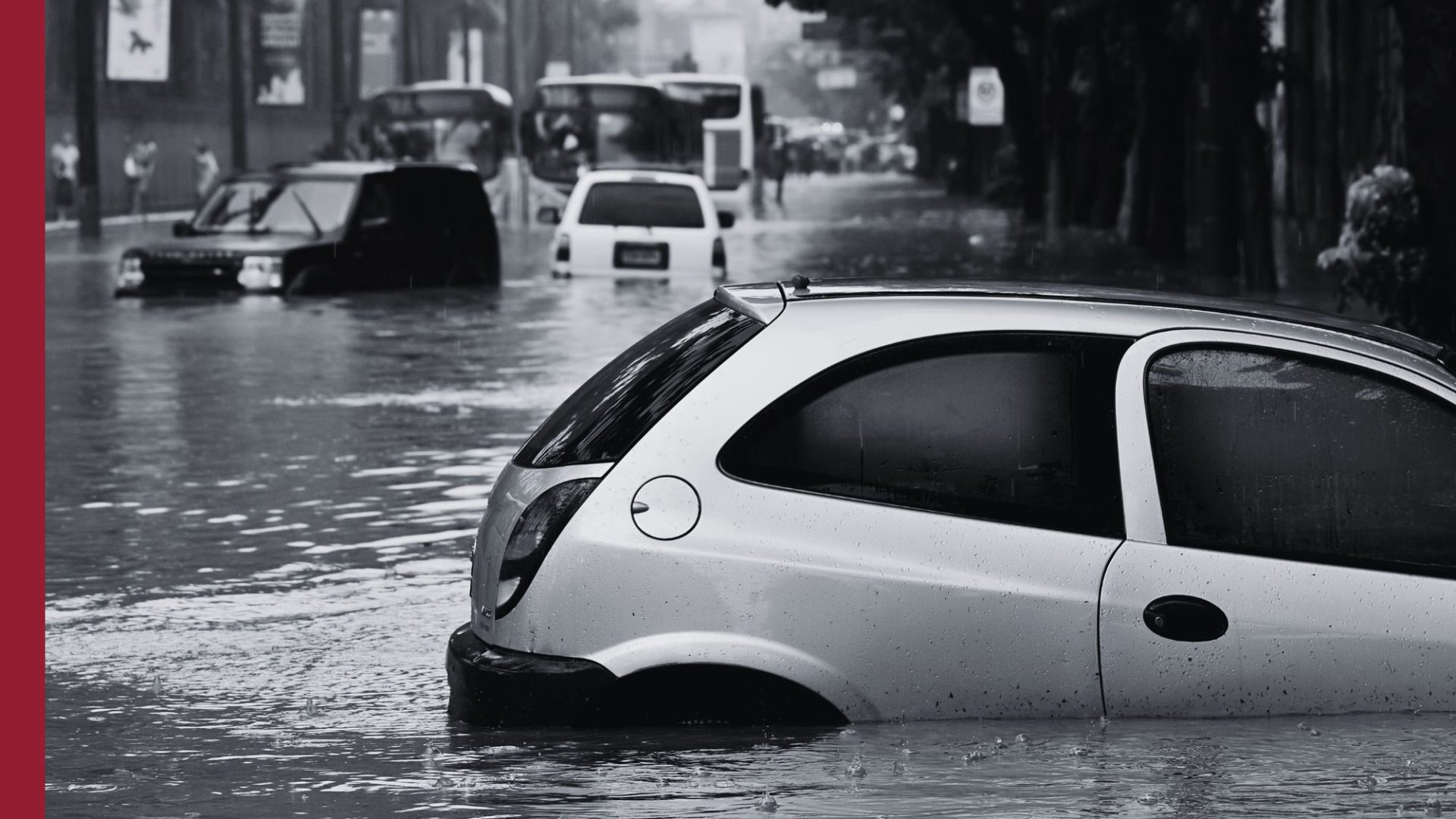Think about what would happen if suddenly there was a storm that destroyed part of the roof of your house and you had to call on your insurance to cover the costs. Could you be sure that the damage would be covered? Are these types of events considered to be poolable claims?
To answer these questions, it is essential to know what these risks are, which body manages them and what to do to obtain adequate compensation. At Ambler, we go into detail on pooling claims so that you can be prepared for unforeseen situations.
What are consortium claims?
The term “sinister” is understood as those events or incidents which, due to their exceptional nature or magnitude, are covered by the Consorcio de Compensación de Seguros (CCS) in Spain:
Extreme natural phenomena
An extreme natural phenomenon must be certified by competent authorities, such as the National Geographic Institute. Which ones specifically? These include earthquakes, tsunamis, catastrophic floods, volcanic eruptions, severe cyclonic storms, and other similar events.
Events of a social or political nature
Events that cause a large amount of property damage or personal injury, such as acts of terrorism, rebellion, riot, and large-scale civil disturbances.
Therefore, when a consortium claim occurs, the CCS intervenes to compensate the insured parties who have taken out an insurance policy with a private company that covers these risks. The intervention of this body is crucial because these extraordinary events tend to exceed the capacity of private insurers to fully cover the damage.
It should be noted that claims that can be pooled are subject to certain conditions and exclusions specified by the CCS regulations, and the compensation depends on the conditions of the insured’s policy and the valuation carried out by the entity’s experts.
Coverage and exclusions
Does the CCS cover all instances or are there exclusions? To answer this question it is necessary to go back to the previous point. As mentioned above, the CCS considers as a claim those events that are of an exceptional nature or magnitude. Therefore, these are the incidents that are covered. As for the exclusions, it is necessary to detail and take into account the following points:
Damage caused by faults or defects of the insured property
CCS does not cover damage resulting from inherent defects or imperfections in the insured property, such as structural problems or design flaws.
Indirect damage or loss of benefits not covered
In addition, damages that are considered indirect or that are not specifically contemplated within the coverages established for consortium events are not included in the coverage. This may include loss of economic benefits or business interruption that are not directly related to the covered property damage or personal injury.
Damage resulting from armed conflict and catastrophic events
Damage caused by government-declared armed conflicts or events that are declared national disasters are also excluded from CCS coverage. Why? Because these events may involve a complexity and magnitude beyond the insurable risks contemplated by the entity.
Finally, it is important to take these exclusions into account when assessing the cover provided by this body and to ensure that the policies taken out with private companies are adequate to cover the risks that might require the intervention of the consortium in the event of a claim.
Compensation process
The process of compensation by the CCS in the event of consortium claims involves a series of steps necessary to ensure that those affected receive the necessary compensation for the damage suffered:
1. Reporting of damage
It is essential to report personal injury or property damage to the CCS immediately after the incident occurs. This can be done directly through the agency’s online platform or through an authorised insurance intermediary representing the insured. This procedure expedites the assessment and the corresponding compensation.
2. Claim for compensation
How can a formal application for compensation be made? The report can be made via the CCS website or by telephone. During this procedure, the insured is requested to provide full details of the insurance policy affected, the specific damage occurred and any other relevant documentation supporting the claim. Once the application is received, CCS will register it in its computer system and assign a reference number to facilitate the follow-up of the case.
3. Valuation and payment of compensation
The CCS is responsible for carrying out a comprehensive assessment of the reported damage in accordance with the conditions stipulated in the insurance policy. This assessment will include a review of the documents submitted and, in some cases, a visit by loss adjusters to assess the damage to property and, where appropriate, personal injury.
After making the assessment, the agency will determine the amount of the corresponding indemnity, taking into account any excess that may apply under the policy conditions. Finally, it will proceed to the payment of the indemnity to the insured or to the designated beneficiaries, thus ensuring compensation for the damages suffered.
This process seeks to ensure that policyholders affected by extraordinary events can receive a rapid response to mitigate the financial and personal impacts of such situations. Transparent and clear communication between the policyholder and the consortium is crucial to ensure effective claims handling and satisfactory outcomes for all parties involved.
Other risks
In addition to pooled risks, there are also a large number of situations in which private insurers may not provide full coverage, which may lead to CCS intervention depending on the circumstances of the case:
Damage from vandalism or malicious acts
Damage resulting from vandalism or malicious acts may sometimes not be fully covered by standard insurance policies. If the damage exceeds the established coverage limits or if the policy excludes such incidents, those affected may require the intervention of the CCS to obtain appropriate compensation.
Flood damage
While private insurance may cover ordinary floods, extraordinary floods, such as those caused by river floods or tsunamis, may be considered pooled risks. In such cases, the CCS intervenes to compensate policyholders who suffer significant losses due to these large-scale natural events.
Damage due to impact of vehicles or aircraft
Some types of damages arising from accidents involving vehicles or aircraft can be complex to handle and present significant challenges in terms of compensation. In such cases, it may be necessary to resort to CCS intervention if the damage exceeds the private insurer’s ability to pay.
Economic losses and loss of profit
Despite careful financial planning, all businesses are exposed to economic loss or loss of profit, which refers to the loss of revenue or profit as a result of an event or situation. These losses may not be covered as pooled risks, but may need further assessment to determine appropriate coverage.
Damage from extreme weather events
In addition to the natural phenomena covered as pooled risks mentioned above, certain extreme weather events such as severe storms, tornadoes or hail can cause considerable damage that may not be fully covered by standard policies. In these situations, CCS may play a crucial role in ensuring adequate compensation.
Committed to your trust
Did you know the importance of understanding what consortium risks include? It is common to overlook the details of insurance policies, but it is essential to choose the right insurance and understand each clause to ensure that we are protected and prepared for any eventuality.
To do this, at Ambler, we have a team of professionals dedicated to working for each client and giving them the peace of mind they need. As an insurance broker, we are dedicated to ensuring that our clients are protected against insurance companies. If you have any questions, queries or need more information about our services, please do not hesitate to contact us at Contact us.





